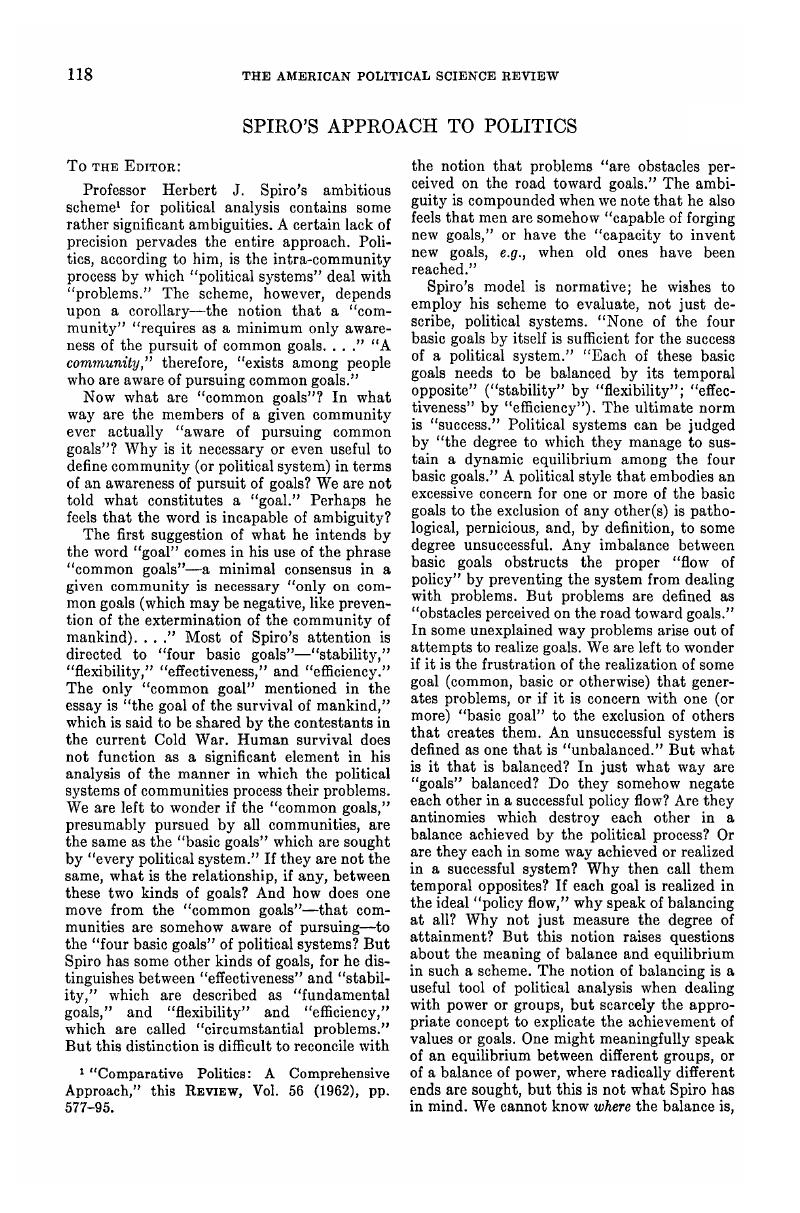No CrossRef data available.
Article contents
Spiro's Approach to Politics
Published online by Cambridge University Press: 01 August 2014
Abstract

- Type
- Communications
- Information
- Copyright
- Copyright © American Political Science Association 1963
References
1 “Comparative Politics: A Comprehensive Approach,” this Review, Vol. 56 (1962), pp. 577–95.
2 See David Braybrooke, “The Relevance of Norms to Political Description,” this Review, Vol. 52 (1958), pp. 922-6.
3 Ibid., pp. 996 ff., for some useful comments on normative models.
4 For a criticism of Spiro's neglect of power in political analysis, see Rintala, Marvin, “Näkökoh-tia vertailevasta politiikan tutkimuksesta,” Politiikka, 1962, No. 1, pp. 71–3Google Scholar.
5 For an analysis of one such attempt, see Midgley, , “Paul Tillich's New Science of Values,” Western Political Quarterly, Vol. 15 (1962), pp. 235–53CrossRefGoogle Scholar.
6 “Which values—that is, matters of substance —command the widest consensus among men? There are some goals on which universal agreement is virtually dictated by the common humanity of human beings: man's superiority over animate and inanimate nature, the perpetuation of mankind (in some form), the prevention of the extermination of all humanity. Similarly, there are fundamental procedures commanding universal agreement, again dictated by ‘human nature’ or, better, ‘the human situation’.” Spiro, , Government by Constitution (New York, 1959), p. 364 Google Scholar.
7 “We certainly need some such consensus, if we are to establish criteria in terms of which to evaluate different constitutional systems.” Ibid., p. 32. Spiro thinks that a “great number of prominent thinkers” “could agree” on his ethic of responsibility “as the lowest common denominator of values” (p. 34). The list includes: Reinhold Niebuhr, Karl Barth, Erich Fromm, Jean-Paul Sartre, José Ortega y Gasset, Karl Mannheim, Stuart Chase, Hans Kelsen, Karl Jaspers, Carl Friedrich, Karl Popper and others.



Comments
No Comments have been published for this article.